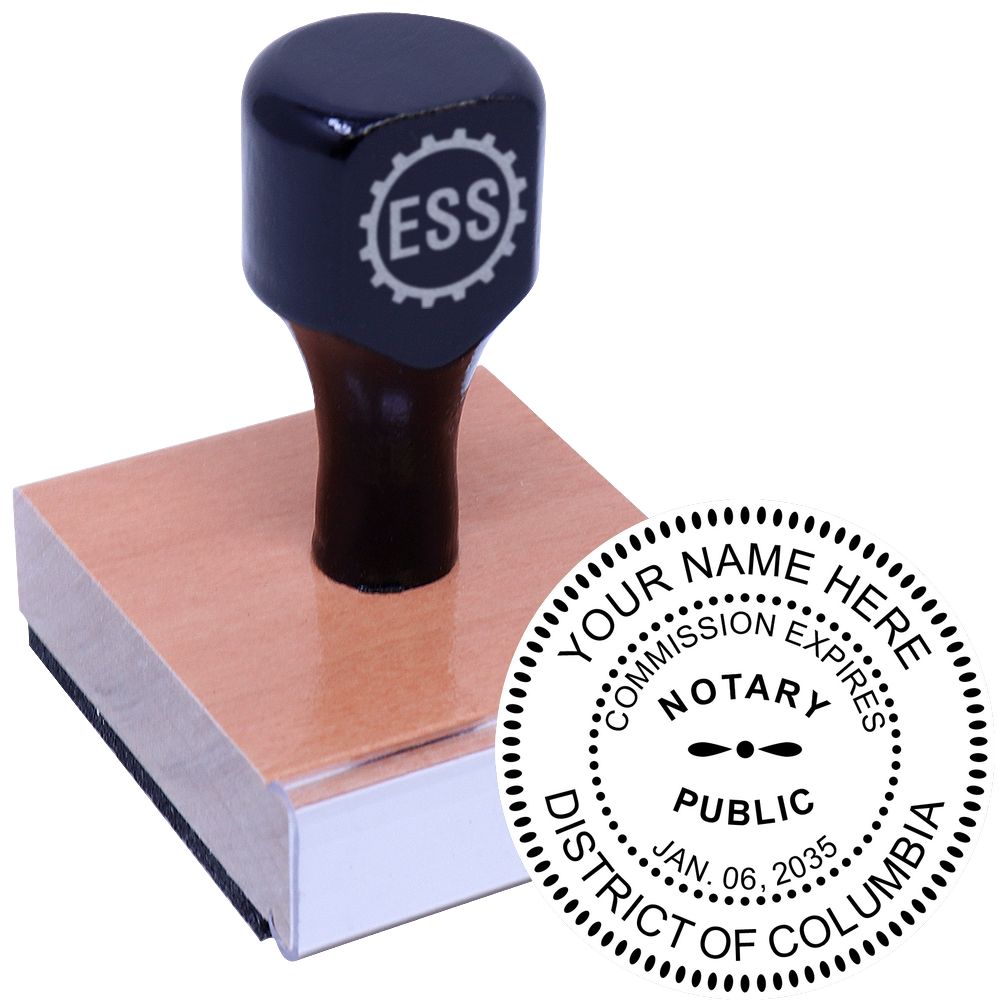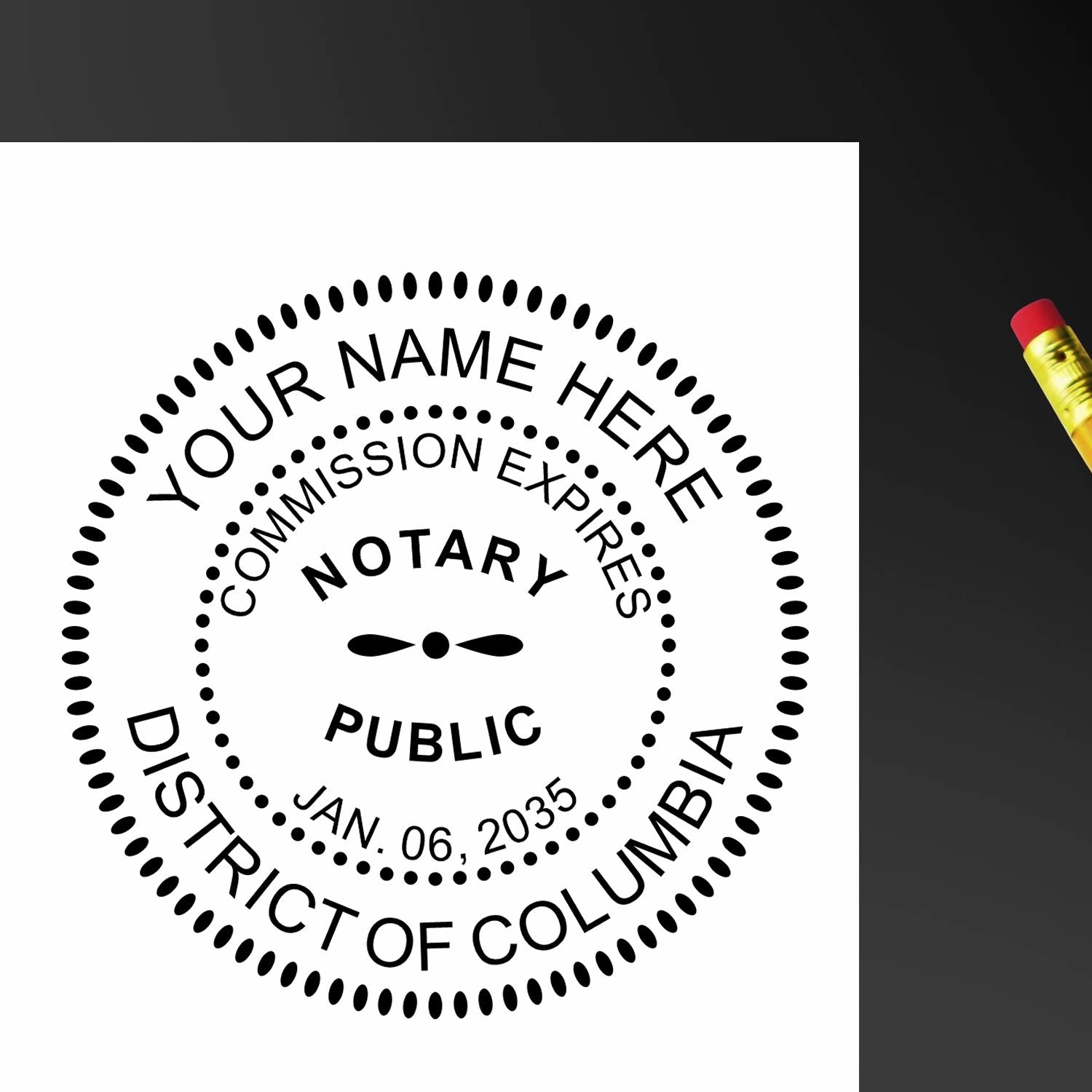District of Columbia Notary Stamp Law can sometimes feel intimidating, especially if you’re juggling everyday tasks. In reality, understanding the guidelines is simpler than you might expect. This post walks you through the essentials of notary stamping, seal usage, and compliance so you can focus on serving your clients with confidence. Whether you’re just getting started as a District of Columbia Notary Public or you’ve been at it for a while, these tips will ensure you stay on track and avoid missteps. Let’s get straight to the point so you can move forward smoothly.
District of Columbia Notary Stamp Law Overview
If you’re a notary in the District of Columbia, you’ve got a unique set of legal requirements to follow. The District expects you to use a stamp (also called an official seal) that clearly identifies your name, your commission, and your jurisdiction. You want that seal to be legible and consistent in every notarized document, from affidavits to acknowledgments.
It’s not just about stamping any old design, though. The District wants the seal to be distinctive enough that no one mistakes it for any other. By using an official stamp, you’re also helping to deter fraud and prove the authenticity of each document you notarize. Essentially, the District of Columbia Notary Stamp Law aims to protect the public by keeping notarial acts transparent and consistent.
Before you rush out to buy a notary stamp, make sure you’ve double-checked the current regulations. Regulations can evolve, so staying up to date is really important. For official guidance, consult your local notary authorities or the District of Columbia’s official resources. Once you have that clarity, you’ll be able to pick the right notary supplies with ease.
Understand the Core Requirements
Are you wondering exactly what the District wants from your stamp or seal? You’re not alone. Here are some of the key features the District usually looks for:
- Your Name: It should appear exactly as it does on your notary commission.
- Your Commission Details: Include your commission expiration date, plus any other info required by the District (like your commission number).
- The Words “Notary Public”: This clarifies your role.
- The Words “District of Columbia” or “DC”: They help anyone reading the document know your jurisdiction.
If you miss any of these elements, there’s a risk that your notarial act could be questioned down the line. Whenever you place your stamp on a document, you’re effectively certifying you’ve followed the right procedure. So be sure your stamp meets all legal criteria, and keep samples or proofs of your stamp on file to show you’re aligned with District standards.
Essential Elements
In many cases, the District also requires that your stamp is photographically reproducible. That means the impressions should be crisp enough to scan or photocopy without losing detail. Here are a few other considerations:
- Ink Color: Some notaries opt for ink that stands out on paper (like blue or black). Confirm if the District has a strict rule on ink color.
- Shape and Size: Circular or rectangular are typical. Just make sure it’s small enough to fit easily but large enough to be read.
- Legibility: Double-check your stamp’s text size. If letters are too small, the impression could blur.




A well-designed notary stamp doesn’t just keep you legally protected, it also helps you look more professional.
Know Your Supplies
While your official notary stamp is vital, you’ll likely need a handful of related items to run a snag-free notarial practice. These extra supplies can save you hassles when you’re signing and certifying documents. Consider adding these tools to your arsenal:
- Notary Journal or Record Book: A good habit is writing down each notarial act, including the signing date, type of document, and identification details for the signer.
- Inkless Thumbprint Pad: Some notaries require or prefer a thumbprint from signers for extra security, although this might not be mandatory in the District of Columbia.
- Carrying Case or Pouch: Keep your seal, stamp, and record book in one place to stay organized.
You can find a range of district of columbia notary supplies that match the District’s regulations and your style. It’s always smart to shop from a reliable vendor so you don’t end up with a subpar or non-compliant stamp.
Use and Care Tips
Here’s the thing: your notary stamp is at the heart of your business. Taking care of it ensures every impression is clear and perfectly aligned with District standards. If a stamp wears out, dries out, or becomes distorted, your documents could be rejected by recipients. Nobody wants that, right?
- Store It Properly: Keep your stamp in a sealed container or pouch so it doesn’t dry.
- Clean It Occasionally: Use a gentle cloth and a mild cleaning solution. Harsh chemicals can degrade the rubber.
- Replace Ink Pads as Needed: If you’re using a self-inking stamp, watch for fading impressions. Maintain a spare ink pad so you never run out.
- Avoid Sharing: Your notary stamp is for your personal authorized use only. Don’t let anyone else handle it.


It’s also a good idea to review the impression periodically. Do a test run on a scrap piece of paper to make sure your name and commission details still look pristine. That extra step goes a long way in protecting your professional image.
Renewal and Compliance
Your journey doesn’t stop the day you get commissioned. The District of Columbia typically sets an expiration date on your commission, and you’ll need to renew it if you plan to keep working as a notary. Failing to renew on time can lead to lapses where you’re not legally allowed to notarize.
If you’re nearing expiration, check the latest guidelines on how to reapply or renew. You might need updated documents, new training, or proof of your ongoing good standing. Think of it like renewing your driver’s license; you don’t want to be caught off guard when the due date rolls around.
- Mark Your Calendar: Jot down your commission expiration date in your planner or phone.
- Prep Your Documents: Collect everything you need (like updated application forms and fees).
- Submit Early: Aim to file your renewal a few weeks before your current commission ends so you have time to fix any hiccups.
Staying proactive ensures you never have to turn away a client because your notary commission temporarily expired.
Why Engineer Seal Stamps?
When it comes to buying your District of Columbia notary stamp and related supplies, you want a company that understands the law as much as you do. At Engineer Seal Stamps, we’ve worked with notaries for over 60 years, and we know the ins and outs of designing stamps that meet legal specs while lasting for years.
You also get a few extra perks:
- Free Digital Stamp With Purchase: Whenever you order a physical notary stamp from us, we’ll provide a digital version at no added cost. This can be handy if you’re doing virtual signings or need to embed a seal electronically.
- Quick Service: You’ll get your stamp fast, without sacrificing quality. We pride ourselves on an efficient turnaround because we know your time is precious.
- Over 60 Years of Experience: Our decades in the seal and stamping business mean we’ve seen just about every regulation and design requirement out there.
We understand the complexities of the District of Columbia Notary Stamp Law, and our goal is to simplify the process for you. By partnering with our team, you can focus on your notarial appointments instead of worrying about your seal’s compliance or longevity.
Moving Forward With Confidence
Once you’ve got your supplies, it’s all about using them responsibly. Double-checking each document, logging your records accurately, and making sure your seal is applied properly will keep you in good standing with the District. Plus, a carefully maintained stamp impression is a hallmark of professionalism that clients respect.
It’s easy to fall into a routine when notarizing multiple documents a day. However, any slip-up could put a vital transaction at risk. Make it a habit to review your notarial acts from time to time. Ask yourself:
- Did I confirm the signer’s identity properly?
- Is my journal accurate and up to date?
- Is my stamp impression still crisp and legally compliant?
These questions serve as gentle reminders that notarizing is both an art and a responsibility. It’s about trust, service, and upholding the law.
Frequently Asked Questions
Do I have to replace my notary stamp during my commission term if it shows wear?
Yes, you should. If your notary stamp starts producing incomplete or blurry impressions, it’s time to replace it. Faint impressions might not scan correctly and could raise questions about the document’s validity.Can I use a seal embosser instead of an inked stamp in the District of Columbia?
The District generally allows an embossed seal, but many official requirements emphasize that your seal must be easily photocopied. An embosser alone might not provide the clarity needed for copies. To comply fully, you may need an inked version or a combination seal-and-stamp setup.What happens if I move during my commission period?
You’ll need to notify the appropriate District authority about your address change. If your new address is still within the District of Columbia, you generally remain eligible to continue your role as a notary. Always check current regulations to be sure.Where can I find high-quality District of Columbia notary supplies?
You can visit district of columbia notary supplies to see a range of compliant stamps, seals, and accessories. Engineer Seal Stamps offers quick service, free digital stamps with your purchase, and a reputation built on over 60 years of experience.
By keeping your notary stamp up to date, following District guidelines, and investing in durable supplies, you’ll streamline your process for every act you perform. Remember, your stamp is your signature of trust. Take good care of it, stay current with District of Columbia regulations, and you’ll have a notarial practice that’s both efficient and reliable. If you have lingering questions, consult official District resources or reach out to our team. We’re here to help you stay on top of your notarial game.










































